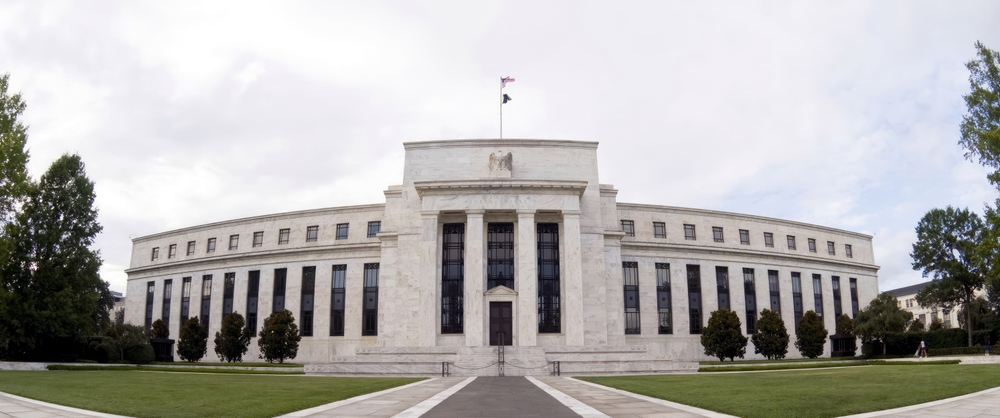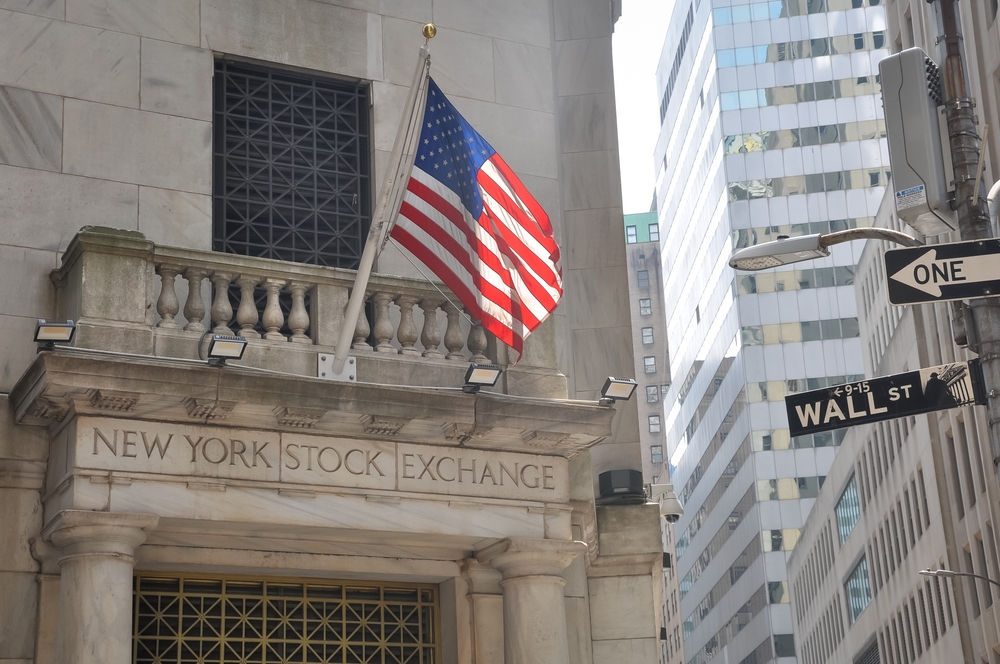
Words That Open Markets
Reagan challenged Americans to let go of their fears and see global markets as an opportunity rather than a threat.
Editor's Note: This contribution is part of Civitas Outlook's Tariff Symposium.
Politics demands many skills, but one indispensable capacity for long-term political success is a mastery of rhetoric. One reason why we remember some US presidents—Abraham Lincoln, Franklin Roosevelt, John Kennedy, Bill Clinton, etc.—more than others has been their ability to use the spoken and written word to persuade and inspire millions of people, for better or worse.
Dullness of personality, awkward phrasing, and lackluster wordsmithing don’t rule out legislative wins or policy triumphs. But being uninspiring, unable to paint a verbal picture of where you want to go, or just plain boring makes the business of persuasion much harder. In few areas has this truism been more vindicated than in America’s present arguments about trade policy.
As someone who has been involved in the debates about trade, which have been at the heart of American politics since Donald Trump came down the golden escalator at Trump Tower on June 16, 2015, there is no question in my mind that protectionists have outmatched many free traders in the realm of rhetoric. That doesn’t mean that protectionists have won the intellectual argument. If anything, the past ten years have illustrated that today’s protectionists are doing little more than rearticulating contemporary versions of the economic case for tariffs refuted long ago by Adam Smith’s The Wealth of Nations and in contemporary works such as Douglas A. Irwin’s Against the Tide: An Intellectual History of Free Trade and Arvind Panagariya’s Free Trade and Prosperity.
But although winning the intellectual case is indispensable, it is rarely enough to clinch policy battles, let alone counter the influence of those interest groups heavily invested in securing protectionist policies that promote their well-being over that of 340 million American consumers. Opinion-polls may presently indicate that most Americans favor free trade, but that positive disposition often comes with many caveats. Americans may favor trade liberalization on a generic level, but some of the same Americans will nevertheless insist that their state, their town, their industry, or their company merits some degree of protection. And when the subject of China is introduced into the discussion, the numbers quickly trend downwards.
Facts Are Never Enough
In short, many Americans have less-than-straightforward views on trade. Economic nationalists know this and exploit diffidence about trade among Americans ruthlessly, especially when they are working to cobble together election-winning national coalitions. This is where rhetoric comes into the picture.
Protectionists regularly employ heady language to motivate sufficient numbers of people and their political representatives to support their policies. Dramatic phrases like “a fair deal for the American workers,” “Skilled craftsmen and tradespeople and factory workers have seen the jobs they love shipped thousands and thousands of miles away,” “globalization has wiped out totally, totally, our middle class,” or “one-third or even half of manufacturing jobs have been wiped out in the last 20 years” litter their speeches.
Each of these statements, taken from a 2016 speech by then-Republican presidential candidate Donald Trump, is eminently contestable based on facts about the state of the US middle-class and how the American workforce has changed over the past half-century. But whether we like it or not, facts often have limited saliency in politics. When Vice-President J.D. Vance argues that American sovereignty necessitates “a government . . . that erects tariff walls and similar barriers to protect its people’s industry,” or when former President Joe Biden stated that he was “announcing new tariffs in key sectors of the economy that are going to ensure that our workers are not held back,” both men are seeking to create the type of atmospherics which obscure facts while also shoring up political support for protectionist policies.
I am not suggesting that free traders should become outright populists. Populist language always leads to the types of exaggerations and half-truths that diminish our grasp of reality, especially economic realities. In a public square replete with this type of discourse, trade liberalizers don’t need to compound this problem.
Free traders must, however, get more serious about rhetoric if they are going to counter the type of pronouncements that help to advance bad trade policies. It would be nice if we lived in a world in which sound normative principles, solid theory, and empirically grounded ideas dominated political discussion and policy development. But we don’t live in such a world. And we never will.
Sentiment, Belief, and Logic
On one level, rhetoric is a question of calibrating one’s arguments for one’s audiences. Dwelling on the evidence which underscores how tariffs and other trade barriers will reduce the rate of annual economic growth by, say, 0.3 percent over an extended time period is important when discussing trade with graduate students who spend their days crunching data. But these types of facts are going to weigh far less if you are discussing trade liberalization with blue-collar workers in a mid-sized American town, for whom the most present reality is that they and their friends lost their jobs when the local factory closed.
A strong emphasis on empirics is always going to be central to arguments for trade liberalization. This needs, however, to go together with narratives that weave such vital facts into a persuasive story. The best rhetoricians throughout history—Pericles, Cicero, Catherine of Siena, Shakespeare, Winston Churchill, etc.—have all understood that compelling rhetoric involves integrating together three things: pathos (emotion), ethos (value-commitments that express a group or country’s character), and logos (reason and logic).
From Aristotle and Quintillian onwards, the teaching of rhetoric has revolved around these three things, appealing as they do to people’s sentiments, beliefs, and rationality. Careful consideration of all three can be found in Adam Smith’s lectures on rhetoric. These lectures dwell extensively on the need to think about the interplay between thoughts, emotions, and your audience’s dispositions before seeking to win people over to support your preferred course of action.
Smith himself didn’t hesitate to deploy rhetoric along these lines in The Wealth of Nations as he sought to convince his target audiences of the follies of mercantilism. Certainly, Smith outlines at length the irrationality of viewing trade as a zero-sum game or the illogical character of the mercantilist obsession with precious metals. But in framing his argument, Smith uses language like “natural liberty” that he surely knew would resonate with the ethos of the commercial middle-class then emerging in late-eighteenth century Britain. Smith also sought to awaken people’s sentiments, most notably when he denounces in vivid terms the basic injustices that flow from mercantilism, such as the privileges that it conferred (much as tariffs do today) upon mediocre but politically connected individuals and groups.
Hearts and Minds
Of course, rhetoric can be used as much for nefarious purposes as for the good. The objective of rhetoric is to engender sympathetic reactions, and protectionists and populists have shown themselves adept at eliciting such responses. They are good at telling the type of stories that contain enough of a semblance of logic to sound plausible, but also compensate for their arguments’ paucity of rationality with appeals to sentiment and a strong emphasis on values. Against this type of argument, the free trader who focuses exclusively on data and empirics will struggle to gain traction among audiences who don’t have the luxury of spending most of their time thinking about such things.
Free traders today tend to be strong on logic and evidence but, with some notable exceptions, devote less time to the pathos and ethos elements that are essential for persuasion. Closely tying the rational case for free trade to America’s character as a commercial nation, or arousing people’s sense of injustice at how tariffs bestow favors on those with close connections to legislators, are examples of how to develop a free trade rhetoric capable of countering populist claims on grounds that economic nationalists generally regard as their own.
The modern master of the type of rhetoric in which free trade arguments should be couched was Ronald Reagan. He thoroughly understood the economic logic underlying the case for trade liberalization. That, however, did not inhibit Reagan from cloaking his free trade policies in inspirational language.
In a radio address delivered for the Labor Day weekend in 1987, Reagan pitched his case for trade not to the nation’s c-suites, but to the American everyman. After insisting that “American workers can outcompete and beat the pants off anybody, anywhere,” Reagan then challenged Americans to let go of their fears and see global markets as an opportunity rather than a threat:
Trade and commerce are the lifeblood of job creation. The flow of goods and services between countries and peoples is a stimulus to growth and prosperity. This isn’t a time for us to be afraid, to be erecting barriers, or to be trying to shut out the world. Instead, we should be working to open markets, to increase our productivity, and to meet the competition head-on. And don't let anyone tell you we can’t do it. Last year manufacturing productivity in the United States jumped by 3.5 percent, the biggest increase of any major industrialized nation. . . . Companies have been restructured, overhead has been cut, costs brought down, quality improved. Impressive investments have been made in technology and computerization. American industry is stepping out in the world again, and this time it’s leaner, meaner, and ready for action.
Note how Reagan weaves economic facts into a powerful narrative in which he urges Americans to see the global market as full of possibilities, to boldly embrace the disciplines of international competition instead of meekly cowering behind tariff walls, and to have confidence that they will reap the economic benefits of hard work and adaptation. Above all, Reagan underscores his belief in the capacity of everyday Americans to stride forth once again onto the world stage and take on all comers.
If, as opinion polls indicate, most Americans are broadly sympathetic to more and less inhibited trade with the rest of the world, the political soil may well be fertile for these types of arguments for free trade, marked as they are as much by ethos and pathos as they are by logos. Cadences and rhythms of speech aren’t everything. But as prominent free trade advocates ranging from Smith to Edmund Burke and Richard Cobden recognized, formidable rhetoric can make a difference. Their example is ours to emulate.
Samuel Gregg is the Friedrich Hayek Chair in Economics and Economic History at the American Institute for Economic Research.
Economic Dynamism
.jpg)
Do Dynamic Societies Leave Workers Behind Culturally?
Technological change is undoubtedly raising profound metaphysical questions, and thinking clearly about them may be more consequential than ever.

The War on Disruption
The only way we can challenge stagnation is by attacking the underlying narratives. What today’s societies need is a celebration of messiness.

Unlocking Public Value: A Proposal for AI Opportunity Zones
Governments often regulate AI’s risks without measuring its rewards—AI Opportunity Zones would flip the script by granting public institutions open access to advanced systems in exchange for transparent, real-world testing that proves their value on society’s toughest challenges.

Downtowns are dying, but we know how to save them
Even those who yearn to visit or live in a walkable, dense neighborhood are not going to flock to a place surrounded by a grim urban dystopia.

The Housing Crisis
Soaring housing costs are driving young people towards socialism—only dispersed development and expanded property ownership can preserve liberal democracy.

Oren Cass's Bad Timing
Cass’s critique misses the most telling point about today’s economy: U.S. companies are on top because they consistently outcompete their global rivals.

Blocking AI’s Information Explosion Hurts Everyone
Preventing AI from performing its crucial role of providing information to the public will hinder the lives of those who need it.



.jpeg)




.jpg)





